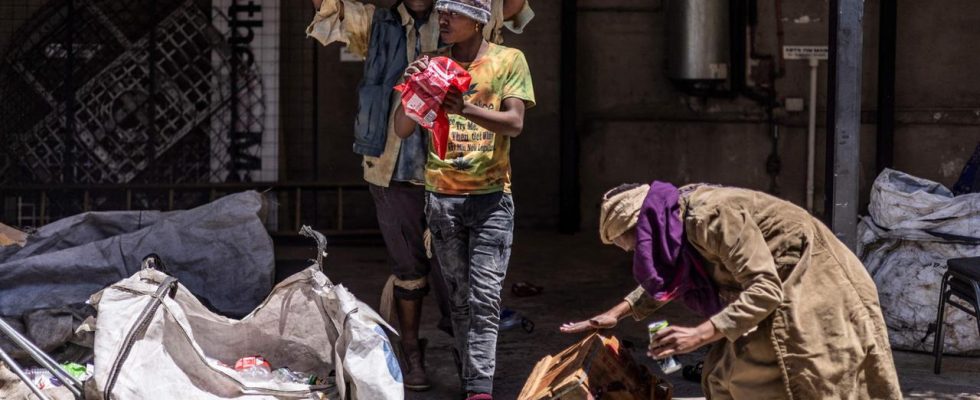In South Africa, almost 90 percent of packaging waste is recycled. This is ensured by so-called waste pickers who dig for recyclables in other people’s garbage cans. An organization wants to improve its working conditions.
When Siphelele Ndlovu pulls his self-made cart, loaded with bags of recyclables, through Johannesburg, he has already completed several hours of work. It begins early in the morning when the garbage cans are rolled out to the street. So that no one can get ahead of him, the 39-year-old father sleeps in a bus depot nearby.
His friend Mzambiya says: “You either have to wake up early or sleep right there because there’s a lot of competition. Sometimes we fight among ourselves. Suddenly there’s someone who says it’s his street. Luckily I have a street.”
5,500 Recyclables collector have merged
Siphelele Ndlovu actually studied marketing, and for eight years now his family has made a living from him fishing out recyclables from the garbage cans in the middle-class neighborhood of Parkhurst. He doesn’t have any gloves. When the garbage trucks come, he has to be ready and sorting the recyclables. “I have to put everything in different bags,” explains Ndlovu. He has to separate plastic boxes and canisters because they are different.
There are 40,000 to 50,000 waste pickers in Johannesburg, estimates Luyanda Hlatshwayo from the African Reclaimers Organization, a self-help organization that sorts recyclables in a rented hall in the city center. “Since 2017, we have been equipping recyclers, as we call them, with green overalls so they can be identified, and with gloves and everything they need for the job.”
5,500 recycling collectors are now part of the organization. “We encourage recyclers to organize themselves and their workspace, because in the value chain we are very invisible, but in fact we are the ones who make it work.”
Around 60 tons of sorted recyclables per month
Hlatshwayo himself has been digging in garbage cans for years. Now he proudly shows how cans, cardboard boxes, Tetrapaks and foil are sorted in the hall and then pressed. “This is our first hall, we are expanding it,” he says. They have around 60 tonnes of pure recyclables per month. 20 people would work here. “By giving them the opportunity to do this, their work becomes dignified.”
The organization works with district administrations and citizen communities. She provides information about waste separation, distributes reusable recycling bags and collects them with trucks. This means no one has to open garbage cans or pay criminal gangs for access to a landfill, says Hlatshwayo.
Proceeds from the recyclables go to the employees
He sees the government as responsible for South Africa’s inadequate recycling system. “Not creating a proper process to collect recyclables was a big mistake by the government.” That would have made it easy for criminal syndicates. Because they realized that there was money to be made.
“We don’t want to fight with them. We’re looking for solutions, programs like this. We’re bringing the recyclers from the landfills here, into cleaner and safer working conditions.” The proceeds from the recyclables go to the employees. They also have unemployment insurance and are no longer considered informal or illegal. The African Reclaimers Organization wants to achieve this for all reclaimers in the long term.
Several kilometers to the collection point
However, like most waste pickers in Johannesburg, Ndlovu continues to travel on the road. He has to take the sorted recyclables to a collection point miles away. And he can only hope that he is paid fairly.
“You don’t have a chance to check the prices and what’s happening here. What they gave me after the weigh-in isn’t much. That’s not right for a week’s work.” In a good week, the 39-year-old makes the equivalent of 50 euros, in a bad week he only makes 10. He can only afford to drive the 600 kilometers to see his wife and children at Christmas.
Karin Wehrheim, ARD Johannesburg, tagesschau, December 19, 2023 11:03 a.m

